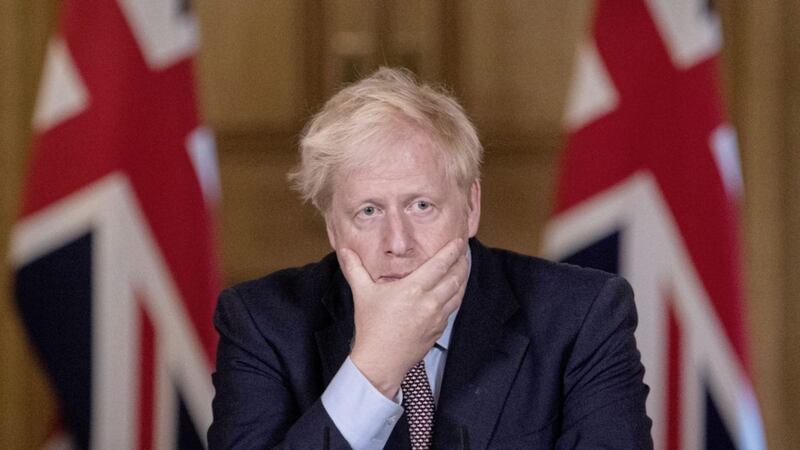It will take a while for the trading details of the Brexit deal to emerge, but the political outcomes are already drearily familiar.
In Boris Johnson, Irish nationalism has found a new and more dishevelled-looking equivalent of Cromwell, who is engaged in a political civil war in his own country. Ireland sees its future as tied to European powers, while continuing to support the losing side in England’s internal divisions. Welcome to a re-enactment of the 1640s.
The villain in all this is Johnson, whom many in this country regard as personifying Britain when, in fact, he does not even personify the Tory party. (He believes in state aid to industry, which will have Mrs Thatcher turning in her grave.)
Demonising Johnson (whose behaviour tends to encourage it) encourages Dublin commentators to suggest that Irish nationalism is somehow “better” than English nationalism. While English nationalism certainly has a strong streak of imperialism, Dublin’s brightest might recognise that all nations have problems with nationalism when it is taken to extremes (and we in the north should know that better than most).
Ah but, you say, no Irish politician would break a treaty. Really? (A knowledge of history can be distinctly unhelpful at times like this.) In the 1930s de Valera reneged on several parts of the 1921 Anglo-Irish Treaty.
He abolished the oath of allegiance to Britain’s monarch, removed the post of Governor General (the king’s representative in Ireland), ended the British Privy Council’s Irish role and terminated Ireland’s dominion status with the Commonwealth. Fair play to him, you say, and you have a point.
But he reneged on an international treaty (and reinforced partition). In fairness, it happened a decade after the treaty was signed and, in any case, de Valera had opposed the treaty. His actions do not justify Johnson’s behaviour, but it suggests that breaking treaties is not a specifically British thing. (The US, for example, broke 374 treaties with native American tribes.)
Like Cromwell’s, Johnson’s attitude to Ireland can partly be explained by an Irish misunderstanding of English politics. In the 1640s, Irish chieftains and Catholic Church leaders supported the king against the English republicans who deposed him. (There were republicans in England before the Irish knew the meaning of the word.) Ireland sought help from France and Italy but, as usual, it never came. Cromwell arrived instead.
(Irish support for British royalty survives to this day in the Dublin media, including the state-owned RTÉ, whose website highlights such important topics as royal fashion. Britain’s class system is alive and well and living in Dublin.)
Modern Irish leaders misread the causes of Brexit and, rather than seek a deal in Ireland’s interests, they totally opposed Brexit, even calling for a second referendum (which was none of their business). They flatly rejected Theresa May’s proposal for all the UK to remain in the EU customs union, in the belief that help would soon arrive from France, Germany and Italy. It has yet to come.
Having deposed Theresa May, Johnson arrived instead, treating Ireland as he sees fit. The historical comparison does not end there. In the 1641 rebellion, settler towns in Ulster were attacked and were subsequently defended with stone fortifications. In our recent troubles, these same towns were defended with steel barriers for largely the same reason.
The sectarianism of 1641 survives today as the DUP allies itself with Johnson, while Sinn Féin and Dublin align with European powers. Instead of a unified call for special economic status for the north, Stormont’s two main parties re-enact the divisions of the 17th Century.
As a result the north has become a pawn in the struggle for global economic influence between the EU and the UK. There is little difference between the two, but few on both sides of the sectarian divide here have yet to discover that.
You see, the point about history is that we should not just learn it, we should learn from it. Right now, Ireland is failing on both counts.








